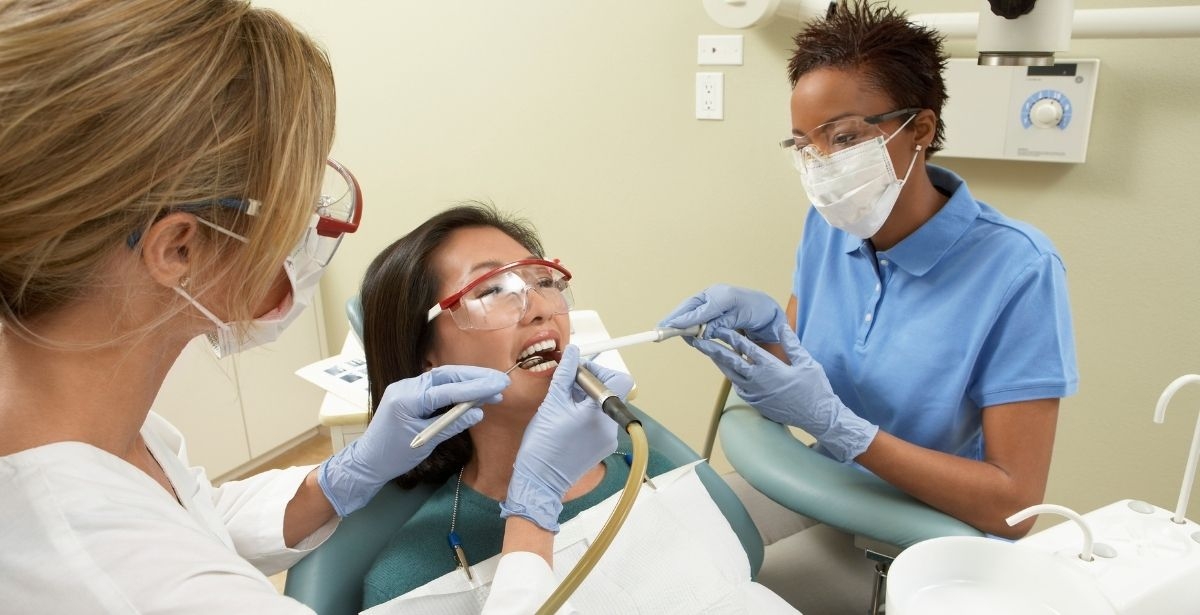
Why Chairside Assistance Matters as a Dental Assistant
As a Dental Assistant, you will play a very important role in helping both the dentist and the patient during a dental appointment. Your chairside assistance can increase efficiency, improve productivity, and calm nervous patients. Whether you help during oral surgery or the construction of a dental crown, you will want to be at the top of your game in order to meet the needs of the dentist and to make sure your patient is comfortable. You’ll use all the skills you learned in a good Dental Assisting training program, but even more importantly, you’ll use your compassion and desire to help people stay healthy.
How to Be Good at Dental Chairside Assistance
- Have a calm and soothing approach: Studies show that over 60 percent of people suffer from dental fear. Many have a true phobia about even sitting in a chair. If you can show a calm and soothing demeanor, the patient will be more relaxed, too.
- Know the procedures: It’s your job as a Dental Assistant to set up the exam room prior to the arrival of a patient for a dental procedure. You will need to be familiar with what materials and supplies will be required for each type of procedure.
- Know the names of all the dental tools and equipment: When the dentist is in the middle of surgery and says “Hand me the sinus lift” you’ll need to grab that tool in seconds and hand it over. Take the time to memorize the names of everything, especially new tools that arrive in the office.
- Recognize the signs that the patient is uncomfortable: A dentist may not realize a patient is experiencing pain, but a good assistant will recognize the signs such as eyes tearing, fidgety motions, or clenched fists. It will be your job to alert the dentist that additional pain medication might be required.
- Know what needs to be done before anyone asks you to do it: As you gain more and more experience, it should not be necessary for the dentist to tell you every step of what needs to be done during a procedure. If you have the foresight to anticipate the needs of the patient and the dentist, you will become an invaluable member of the dental staff.
- Have patience and stamina: You could be standing or sitting for long periods of time, depending on the complexity of the procedure. You’ll need to remain alert and focused on what is going on to provide the best possible assistance.
Do you have what it takes to be a good Dental Assistant? At Porter and Chester Institute in Connecticut and Massachusetts, you can receive hands-on Dental Assistant training as well as real-world experience in an externship to become qualified in as little as nine months. Want to find out more? Call us today at 800-870-6789.






